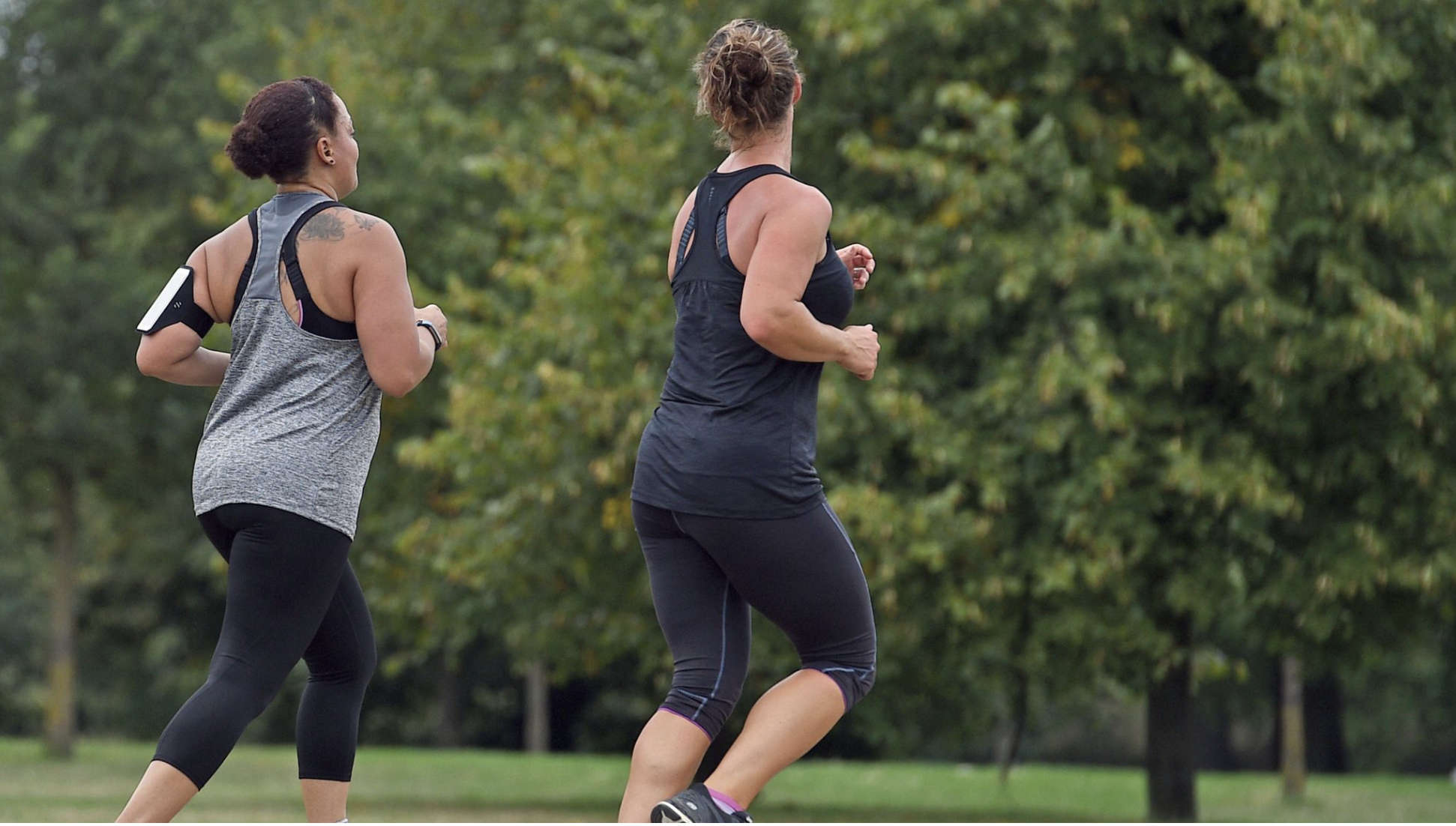
Some forms of exercise are just as good as therapy and even better than anti-depressants at treating depression, according to a new study.
Walking, jogging, yoga and strength training appeared to be more effective than other types of exercise, according to a major new analysis prompting academics to say they should be a "core treatment" for the condition.
The more vigorous the exercise, the better, according to a research team led by academics in Australia, but even low intensity exercises such as walking and yoga had meaningful benefits.
The effect of exercise appeared superior to anti-depressants, according to the study which has been published in The BMJ.
But when exercise was combined with anti-depressants, this improved the effect of the drugs.
They also found that the benefit of exercise was comparable with that of cognitive behavioural therapy, but the quality of evidence supporting therapy was higher.
Researchers drew their findings from 218 clinical trials involving more than 14,000 people from multiple countries.
"Exercise is an effective treatment for depression, with walking or jogging, yoga and strength training more effective than other exercises, particularly when intense.
"Yoga and strength training were well tolerated compared with other treatments.
"Exercise appeared equally effective for people with and without comorbidities and with different baseline levels of depression."
They added: "These forms of exercise could be considered alongside psychotherapy and antidepressants as core treatments for depression."
Dr Paul Keedwell, consultant psychiatrist and fellow of the Royal College of Psychiatrists, said:
"Social interaction might be almost as important as the physiological effects of exercise (with group activities such as yoga, dance and walking groups being particularly helpful), and context is probably important too, with additional benefits to be gained in green and natural environments.
"Many depressed individuals find exercise very challenging. But, taken together, the evidence supports exercise being an important part of a package of treatments for depression, and it will help with physical health too."
But Professor Michael Bloomfield, consultant psychiatrist at UCL, added:
"Whilst this paper adds to the evidence that exercise is good for you, it is not possible to say at this stage that exercise on its own is better than existing treatments including medication and psychological therapies.
"When people experience more severe forms of depression simply offering exercise may not be completely helpful, for example, when someone is struggling to get out of bed let alone get to the gym.
"Depression is often caused by a range of factors and it is more helpful to think about the pros and cons of a range of treatments including medication, talking therapy and exercise, that can be offered to patients, rather than an unhelpful division of medication vs. talking therapy vs. exercise."
Anyone feeling emotionally distressed or suicidal can call Samaritans for help on 116 123 or email [email protected] in the UK.

(c) Sky News 2024: Exercise even better than anti-depressants at treating depression, study finds


 Meet The Southern Train Driver Magistrate Delivering Justice In Sussex
Meet The Southern Train Driver Magistrate Delivering Justice In Sussex
 Witnesses Sought Following House Fire In Eastbourne
Witnesses Sought Following House Fire In Eastbourne
 University Of Brighton Recognised As Top Sports Education Provider
University Of Brighton Recognised As Top Sports Education Provider
 Shoreham Harbour RNLI Opens Recruitment For Boat Crew Volunteers
Shoreham Harbour RNLI Opens Recruitment For Boat Crew Volunteers
 Eastbourne man admits stalking woman in Hailsham
Eastbourne man admits stalking woman in Hailsham
 CCTV Appeal After Luggage Stolen From Gatwick
CCTV Appeal After Luggage Stolen From Gatwick
 Appeal After Boy Seriously Injured In Firle Collision
Appeal After Boy Seriously Injured In Firle Collision
 Boy Charged After Knife Incident On Brighton Bus
Boy Charged After Knife Incident On Brighton Bus
 Play Area Refurbishment In Chichester Moves A Step Forward
Play Area Refurbishment In Chichester Moves A Step Forward
 Captivating Water Projection And Light Show To Be Held At Arundel Lido
Captivating Water Projection And Light Show To Be Held At Arundel Lido